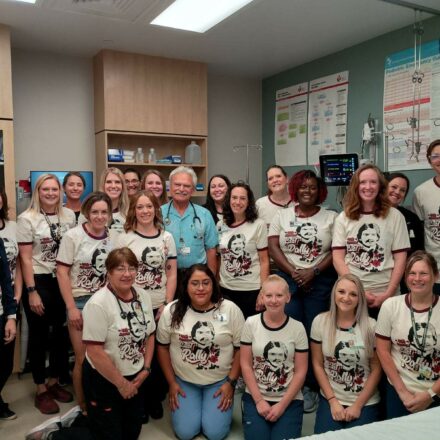
by Brandi Tackett, PharmD
Pharmacists are trained to help you manage and improve your health every day. Your pharmacist—along with your primary health care provider—can give you answers to questions on many topics, including medications and immunizations. Pharmacists also teach practical skills, including how to use blood glucose monitors and asthma inhalers.
Understanding your medications may feel overwhelming and pharmacists are an excellent source of information and important members of your health care team. Here are ten questions to ask your pharmacist about your medications.
What is my medication used for?
While this may seem like an obvious question, knowing what your medication is for helps you determine if it is working. Some medications have multiple uses, like some blood pressure medications may be used to manage migraines or anxiety. Understanding and communicating what your medication is for can also be a great help to other members of your health care team.
Are there other names for my medication?
Every medication has a brand and generic name. For example, Tylenol is the brand name, and acetaminophen is the generic name of this popular pain reliever and fever reducer. This can be important information because multiple treatments can have the same active ingredients. For instance, many over-the-counter cold treatments contain acetaminophen.
How and when do I take my medication, and what should I do if I miss a dose?
There may be special instructions with your medication about how and when to take it correctly. This could include whether to take your medication with food or on an empty stomach or if it needs to be taken at a different time than other medications. Some medications cannot be split or crushed. You can ask your pharmacist if you are unclear about any instructions or what you should do if you miss a dose.
How should I store my medication?
All medications should be kept out of reach of children and pets. It is important to always store the medication in the original container with the pharmacy label. Some medications may require refrigeration.
Does this medication have any common side effects, and what should I do if they occur?
Every medication has possible side effects, and it is important to ask your pharmacist what symptoms to watch for. Your pharmacist should also explain what to do in case you experience any side effects. Your actions could range from doing nothing to going to the emergency room.
Are there any precautions I can take to help reduce the chance of experiencing a side effect?
Knowing if there is anything you can do to minimize the chances of experiencing a side effect could improve your chance of success with a medication.
Are there any interactions between this medication and my other medications—prescription, over-the-counter, or herbal products?
It is always good to double-check that your medication does not interact with other medications you are taking. This is particularly important if you obtain medications from different doctors or pharmacies where they may not have records of everything you are taking. In addition, your pharmacist can tell you if over-the-counter medications and herbal supplements are safe to use.
Are there any foods or drinks that I should avoid while taking my medication?
In some cases, certain foods and drinks can affect your medication. For example, grapefruit juice, leafy green vegetables, and alcohol can affect how certain medications work or increase the chance of side effects. Work with your pharmacist to understand what foods, if any, interact with your medications.
Are there any cheaper alternatives or copay assistance programs for this medication?
Medications can be expensive. Talk to your pharmacist about generic versions, copay assistance programs, or special offers through the manufacturer that may help save some money.
May I repeat back what you just told me to make sure I understand?
This is an important and commonly overlooked step for patients. When you repeat back what you just learned, the pharmacist can clarify any information or details.
When it comes to taking care of your whole health, pharmacists play a major role in the equation. Communicating with your pharmacist regularly can help reduce the chance of complications and increase your chance of success with your medications.
Brandi Tackett, PharmD, is the Director of Infusion Services at Monument Health in Rapid City. She Has been interested in medicine from an early age and works with the pharmacy team to help patient’s make the best decisions about their pharmaceutical medications.
Category
Blog PostsLatest News
More Like This


